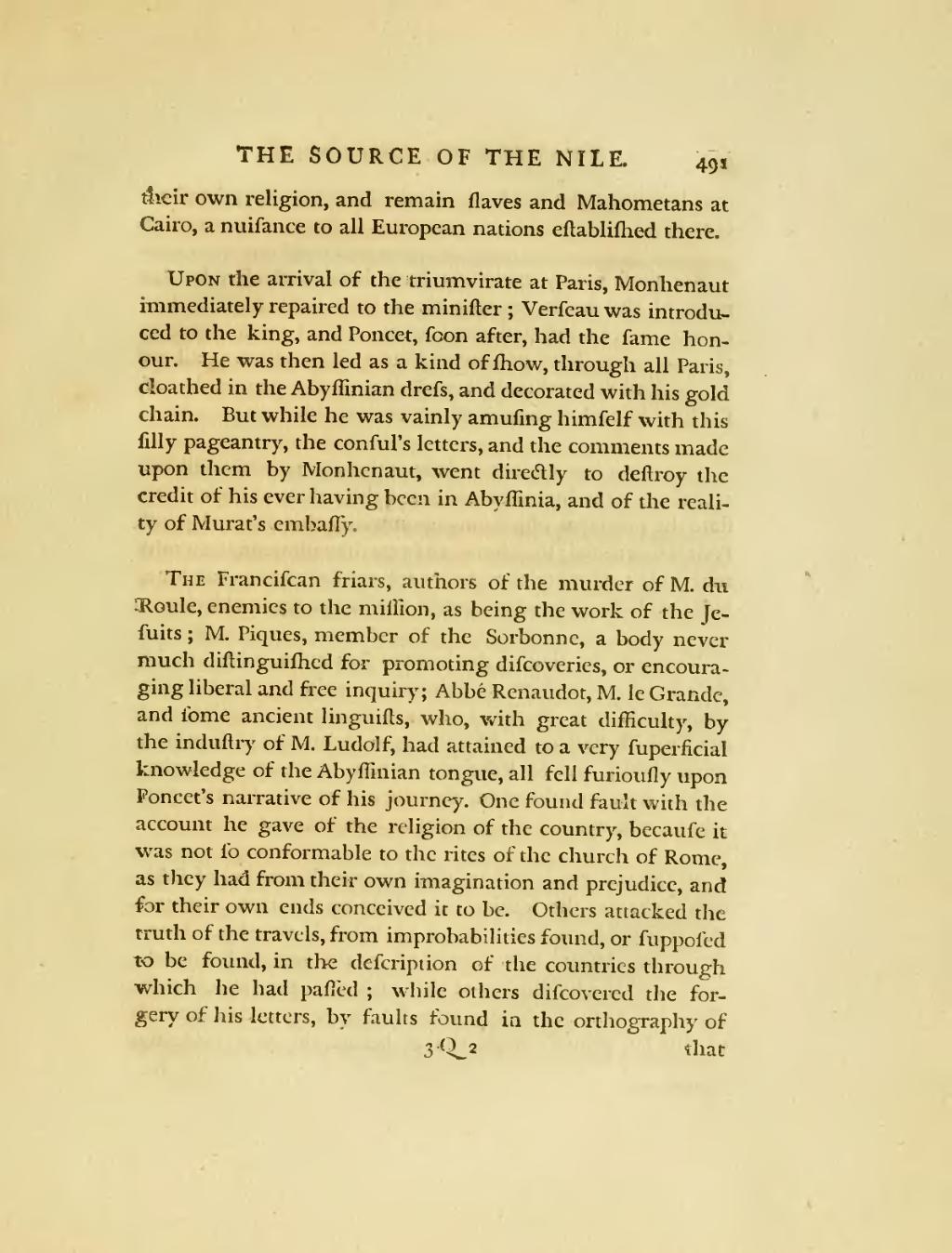their own religion, and remain slaves and Mahometans at Cairo, a nuisance to all European nations established there.
Upon the arrival of the triumvirate at Paris, Monhenaut immediately repaired to the minister; Verseau was introduced to the king, and Poncet, soon after, had the same honour. He was then led as a kind of show, through all Paris, cloathed in the Abyssinian dress, and decorated with his gold chain. But while he was vainly amusing himself with this silly pageantry, the consul's letters, and the comments made upon them by Monhenaut, went directly to destroy the credit of his ever having been in Abyssinia, and of the reality of Murat's embassy.
The Franciscan friars, authors of the murder of M. du Roule, enemies to the mission, as being the work of the Jesuits; M. Piques, member of the Sorbonne, a body never much distinguished for promoting discoveries, or encouraging liberal and free inquiry; Abbe Renaudot, M. le Grande, and some ancient linguists, who, with great difficulty, by the industry of M. Ludolf, had attained to a very superficial knowledge of the Abyssinian tongue, all fell furiously upon Poncet's narrative of his journey. One found fault with the account he gave of the religion of the country, because it was not so conformable to the rites of the church of Rome, as they had from their own imagination and prejudice, and for their own ends conceived it to be. Others attacked the truth of the travels, from improbabilities found, or supposed to be found, in the description of the countries through which he had passed; while others discovered the forgery of his letters, by faults found in the orthography of
